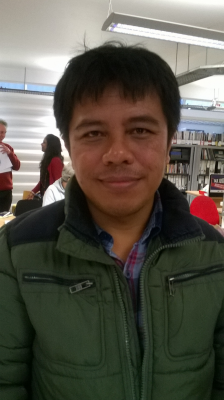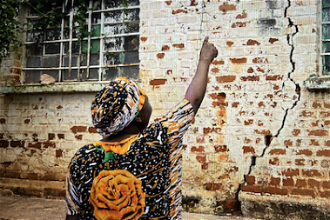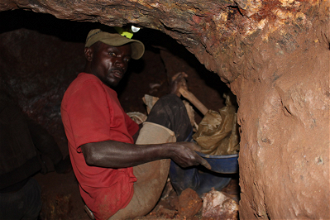London Mining Network AGM - Support from Church groups

Pius Ginting
Church groups who support the London Mining Network, were amongst those attending its lively AGM in north London on 16 April. These included the Passionists and the Columbans who back campaigning for justice in the mining industry. The Columbans have used the Network's new educational board game about the impacts on people and the environment of mobile phones. Other organisations involved in the work include Mines and Communities, Amnesty International, War on Want and Global Justice Now and all share information and advocacy very effectively on social media.
Chair Richard Solly, a Catholic, reported on the visitors over the past year from communities devastated by destructive large-scale mining. They had come from South Africa, Madagascar, Brazil and Chile to speak about their experiences and lobby for respect for human and environmental rights.
Preparations are being made for Anglo-American's AGM in May, to hold it accountable for spills in Brazil. A pipeline in Brazil carrying iron ore more than 500 kms from Minas Gerias State to a terminal on the Atlantic Ocean burst twice during March 2018. The mineral pipeline is part of the Minas-Rio project of Anglo American. A slurry made up of 70% iron ore and 30% water is transported through the pipeline and the spills have polluted the water supply to small towns along the route. The London Mining Network has been monitoring the project.
The main speaker at the London Mining Network AGM was Indonesian environmental activist Pius Ginting. A week earlier he tackled the board of mining giant Rio Tinto at its AGM over the continuing violence and environmental degradation around the Grasberg copper-gold mine in West Papua. The Grasberg Mine is the largest gold mine and the second largest copper mine in the world. He reported at both AGMs about his visit to areas impacted by the Grasberg mine's tailings disposal in the Mimika coastal area of Papua. Residents of Karaka island have been very badly affected, and residents of one community had to abandon their village as it was now surrounded by mining waste, known as tailings. There had been 100 people living there in the 1970s and now there were only ten, because the area was poisoned. The community is seeking recompense but until now nothing adequate had been provided for the community, not even clean water.
Grasberg is owned and operated by Freeport Indonesia (PTFI), a subsidiary of US-based Freeport-McMoRan Copper & Gold Inc. (FCX). Rio Tinto has a joint venture with FCX for a 40 per cent share of production above specific levels until 2021, and 40 per cent of all production after 2021. Rio Tinto chairman Simon Thompson acknowledged that riverine tailings disposal is very far from best practice, and Rio Tinto has said publicly that it would not support it or seabed disposal in new projects. Pius said that it was good that Rio Tinto does not support riverine tailings disposal, but tailings continue to persist, as 80% of tailings remain in the river and 20% contaminate the coastal area, affecting livelihoods. In February last year, one of the community of Karaka island was shot dead by security personnel there, and her family is still seeking justice.


















